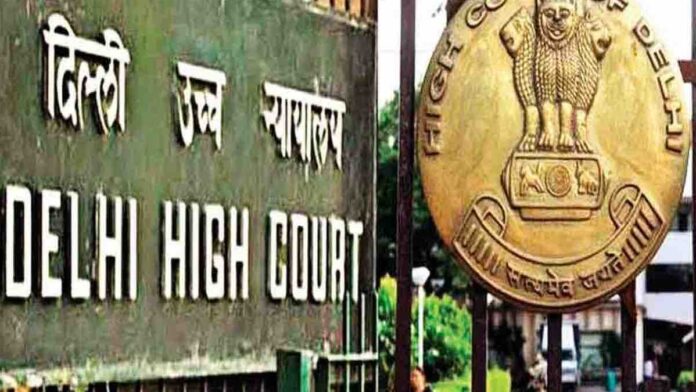Places of worship cannot encroach public land and hinder development activities for the larger segment of public, the Delhi High Court has said while permitting the demolition of portions of a temple and a mosque abutting a public pathway.
The Public Works Department (PWD) said the width of the footpath in front of the two religious premises was insufficient for a pedestrian pathway which has to have a space of six metres.
The caretakers and bearers of the temple –Sanatan Dharam Mandir / Prachin Shiv Mandir, situated at Jheel ka Piao, Opposite Link House, Mathura Road, ITO — had moved the high court last year against a letter issued in October 2022 regarding alleged encroachment by it on PWD’s “right of way”.

Subsequently, the Delhi Waqf Board was also made a party to the petition after the court was informed that a mosque was also being run adjacent to the temple.
The court said the PWD ought to be permitted to make the pedestrian path uniform and not inconvenience the pedestrians on the busy stretch of the road.
Since the wall of both the temple and the mosque abut the pedestrian pathway, the walls would be required to be demolished and the pathway shall now be made uniform, it said.
“This court is of the view that the larger public interest would outweigh the concerns raised by both the places of worship i.e., the Mandir as also the Masjid. There is no gainsaying that places of worship cannot be encroaching public land and hindering developmental activities meant for the larger segment of the public,” said Justice Prathiba M Singh in a recent order.
“In order to make the said pedestrian pathway uniform and so as to not inconvenience the pedestrians on the said busy stretch of the road which also has access to the Delhi Metro station, this Court is of the opinion that the PWD ought to be permitted to make the pedestrian pathway uniform. For the said purpose, if some portion of the Mandir/Masjid is to be broken/demolished, the same would have to be permitted by the Court,” it added.
The court said the PWD executive engineer concerned would confer with the caretakers of both the places of worship and arrive at a consensus as to the time and date for demolition exercise.
It added if any fresh construction is required to secure the area of two religious places, the cost will be borne by the PWD and their occupants will not be treated as unauthorised occupants and no penalties and/or damages would be liable to be levied against them.
The counsel for the two religious places submitted there was no encroachment and a pedestrian pathway existed in front of their premises.
The court, however, said the material on record showed clearly that the “Mandir and Masjid are abutting the pedestrian pathway” and that “there is no uniformity in the pedestrian pathway and the same needs to be made uniform and matched along with the pedestrian pathway across the entire stretch of the road, failing which, pedestrians’ safety would be seriously affected”.
The court recorded that in another decision, the high court has held that if places of worship are taken away for the purposes of carrying out the expansion of the road, it would not mean in any manner that a religious structure is being disrespected, and asked the Delhi Police to provide all cooperation and necessary assistance to ensure its directions are implemented without any disturbance or law and order situation.
The court also directed the PWD shall ensure that one toilet facility each for the temple and the mosque is provided with proper hand washing area, if required and the area for offering prayers shall be tiled.







